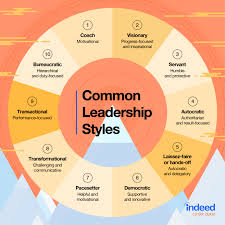The Importance of Professional Leadership Skills
Leadership is a crucial aspect of any successful organisation. Effective leaders inspire and motivate their teams to achieve common goals and drive positive change. Developing professional leadership skills is essential for individuals who aspire to lead with confidence and competence.
Key Components of Professional Leadership Skills
Professional leadership skills encompass a range of qualities and abilities that enable individuals to lead effectively. Some key components include:
- Communication: A good leader must be able to communicate clearly and effectively with team members, stakeholders, and clients.
- Decision-Making: Strong leaders are decisive and can make informed decisions quickly when faced with challenges or opportunities.
- Emotional Intelligence: Understanding and managing emotions, both in oneself and others, is crucial for building strong relationships and fostering a positive work environment.
- Vision: A clear vision for the future helps leaders set goals, inspire others, and steer the organisation towards success.
- Adaptability: Flexibility and the ability to adapt to changing circumstances are essential qualities for effective leadership in today’s dynamic business environment.
Developing Your Professional Leadership Skills
To enhance your professional leadership skills, consider the following strategies:
- Educate Yourself: Take leadership courses, read books on leadership principles, and seek mentorship from experienced leaders.
- Practice Active Listening: Listen attentively to your team members’ concerns, ideas, and feedback to build trust and foster collaboration.
- Lead by Example: Demonstrate the behaviours and values you expect from your team members through your own actions.
- Solicit Feedback: Regularly seek feedback from colleagues, supervisors, and team members to identify areas for improvement and growth.
- Cultivate Emotional Intelligence: Develop self-awareness, empathy, and social skills to enhance your ability to connect with others on a deeper level.
In conclusion, professional leadership skills are essential for driving organisational success and inspiring others to achieve their full potential. By developing these skills through continuous learning, practice, and self-reflection, aspiring leaders can make a positive impact in their workplaces and communities.
Five Essential Tips for Enhancing Professional Leadership Skills
- Lead by example and demonstrate integrity in your actions.
- Communicate effectively with your team members to ensure clarity and alignment.
- Empower your team by delegating tasks and trusting their abilities.
- Provide constructive feedback and support their professional growth.
- Stay adaptable and open to new ideas to lead through change effectively.
Lead by example and demonstrate integrity in your actions.
In the realm of professional leadership skills, a fundamental tip is to lead by example and showcase integrity through your actions. By embodying the values and behaviours you expect from your team members, you establish a foundation of trust and credibility. Demonstrating integrity in every decision and interaction not only fosters a culture of honesty and accountability but also inspires others to uphold similar standards. Effective leaders understand that their actions speak louder than words, and by consistently aligning their behaviour with their principles, they set a powerful example for those around them to follow.
Communicate effectively with your team members to ensure clarity and alignment.
Effective communication is a cornerstone of professional leadership skills. By communicating clearly and openly with team members, leaders can ensure that everyone is on the same page and working towards common goals. Clarity in communication helps to avoid misunderstandings, fosters alignment within the team, and promotes a sense of unity and purpose. When leaders communicate effectively, they create a supportive environment where ideas can flow freely, feedback is welcomed, and collaboration thrives.
Empower your team by delegating tasks and trusting their abilities.
To enhance your professional leadership skills, it is crucial to empower your team by delegating tasks and trusting in their abilities. By assigning responsibilities and allowing team members to take ownership of their work, you not only demonstrate confidence in their capabilities but also foster a sense of autonomy and accountability. Delegation encourages team members to develop new skills, build confidence, and contribute meaningfully to the collective success of the team. Trusting your team to deliver results can lead to increased productivity, improved morale, and a more cohesive working environment where everyone feels valued and motivated to excel.
Provide constructive feedback and support their professional growth.
An essential tip for honing professional leadership skills is to provide constructive feedback and actively support the professional growth of your team members. By offering insightful feedback that focuses on areas for improvement while also acknowledging their strengths, you can empower individuals to enhance their performance and develop new skills. Encouraging continuous learning and providing opportunities for development not only boosts morale but also fosters a culture of growth and excellence within the team. Effective leaders understand the importance of nurturing talent and guiding their team members towards achieving their full potential.
Stay adaptable and open to new ideas to lead through change effectively.
To lead through change effectively, it is crucial to stay adaptable and open to new ideas. Embracing flexibility and a willingness to explore innovative solutions can help leaders navigate uncertain times with confidence and resilience. By remaining open-minded and responsive to emerging challenges, leaders can inspire their teams to embrace change positively and drive successful outcomes in dynamic environments.

